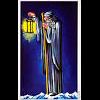Sign in to follow this
Followers
0

Come gather round people, and hear the Good News!
By
Nikolai1, in General Discussion

By
Nikolai1, in General Discussion